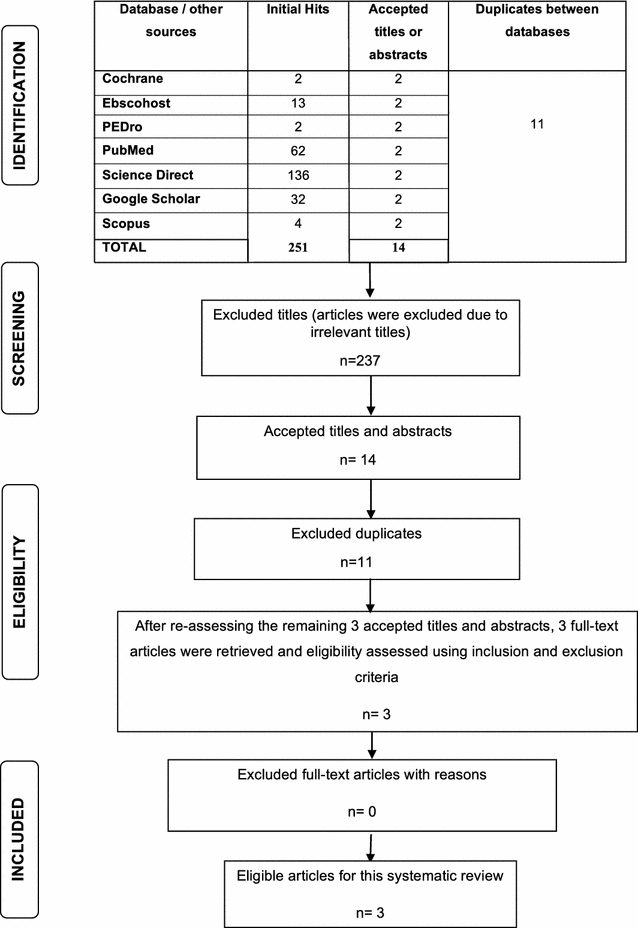Effect of exercise versus cognitive behavioural therapy or no intervention on anxiety, depression, fitness and quality of life in adults with previous methamphetamine dependency: a systematic review
- PMID: 29338767
- PMCID: PMC5771022
- DOI: 10.1186/s13722-018-0106-4
Effect of exercise versus cognitive behavioural therapy or no intervention on anxiety, depression, fitness and quality of life in adults with previous methamphetamine dependency: a systematic review
Abstract
Background: Methamphetamine (MA) is a highly addictive psychostimulant used by approximately 52 million people worldwide. Chronic MA abuse leads to detrimental physiological and neurological changes, as well as increases in anxiety and depression, and decreases in overall fitness and quality of life. Exercise has been reported to possibly reverse physiological and neurological damage caused by previous MA use, and to reduce anxiety and depression in this population. The aim of this systematic review was to identify, clinically appraise and synthesise the available evidence for the effectiveness of exercise, compared to cognitive behavioural therapy (CBT), standard care or no intervention, on decreasing anxiety and depression and improving fitness and quality of life in previous MA users.
Methods: Seven computerised databases were searched from inception to May 2017, namely Scopus, Cochrane Library, PubMed/MEDLINE, PEDro, CINAHL, and ScienceDirect. Search terms included exercise, methamphetamine, fitness measures, depression, anxiety and quality of life. Randomised and non-randomised controlled- or clinical trials and pilot studies, published in English, were considered for inclusion. Methodological quality was critically appraised according to the PEDro scale. Heterogeneity across studies regarding control groups and assessment intervals rendered meta analyses inappropriate for this review and results were thus described narratively using text and tables.
Results: Two hundred and fifty-one titles were identified following the initial search, and 14 potentially-relevant titles were selected and the abstracts reviewed. Three studies (two randomised controlled trials and one quasi-experimental pilot) were included, with an average PEDro score of 6.66. Exercise resulted in significantly lower depression and anxiety scores versus CBT (p = 0.001). Balance also significantly improved following exercise versus standard care (p < 0.001); as did vital capacity, hand-grip and one-leg stand with eyes closed. There were significant changes in all subdivisions of the Quality of Life Scale Questionnaire (p < 0.05), except psychology (p = 0.227).
Conclusions: Level II evidence suggests that exercise is effective in reducing anxiety and depression and improving fitness in previous MA users, and Level III-2 evidence suggests that exercise is beneficial for improving quality of life in this population. Overall recovery in previous MA dependents might be significantly enhanced by including exercise in the rehabilitation process. Further research is required to strengthen these conclusions and to inform policy and health systems effectively.
Keywords: Anxiety; Depression; Exercise; Fitness; Methamphetamine; Quality of life.
References
-
- ICD10Data.com. http://www.icd10data.com/ICD10CM/Codes/F01-F99/F10-F19/F15-/F15.20. Accessed 7 Dec 2017.
Publication types
MeSH terms
LinkOut - more resources
Full Text Sources
Other Literature Sources
Medical


